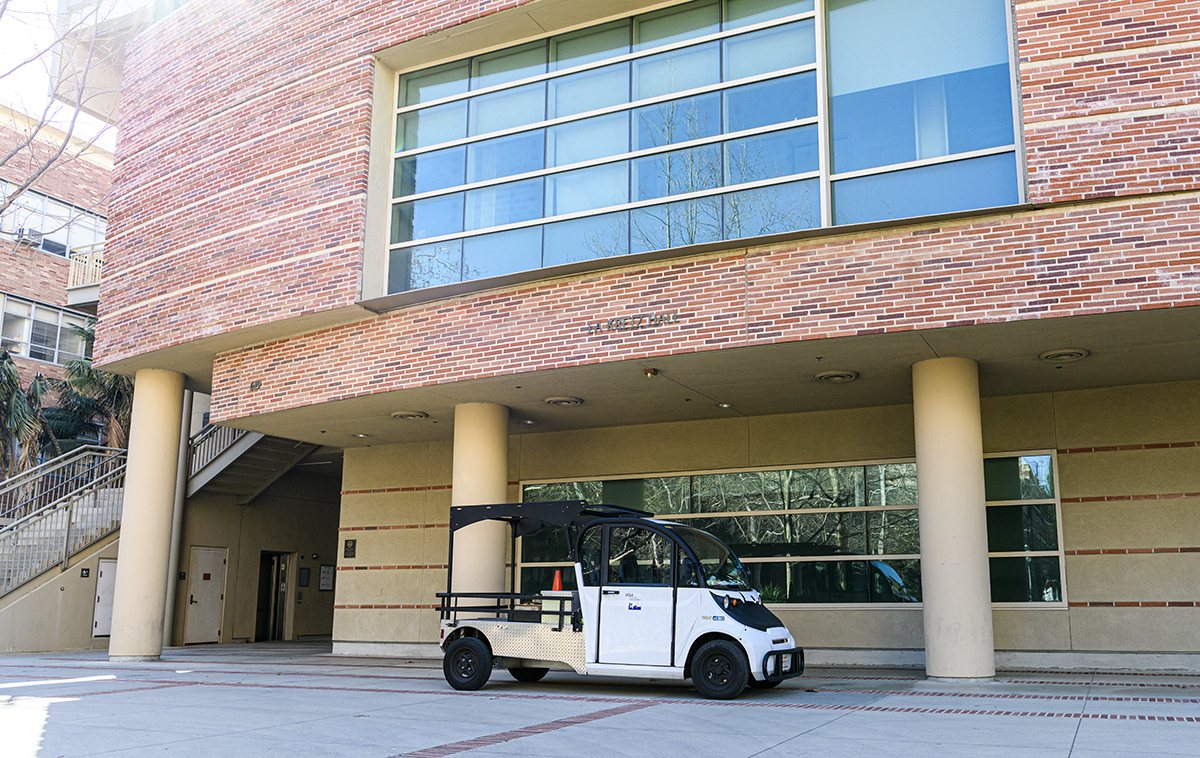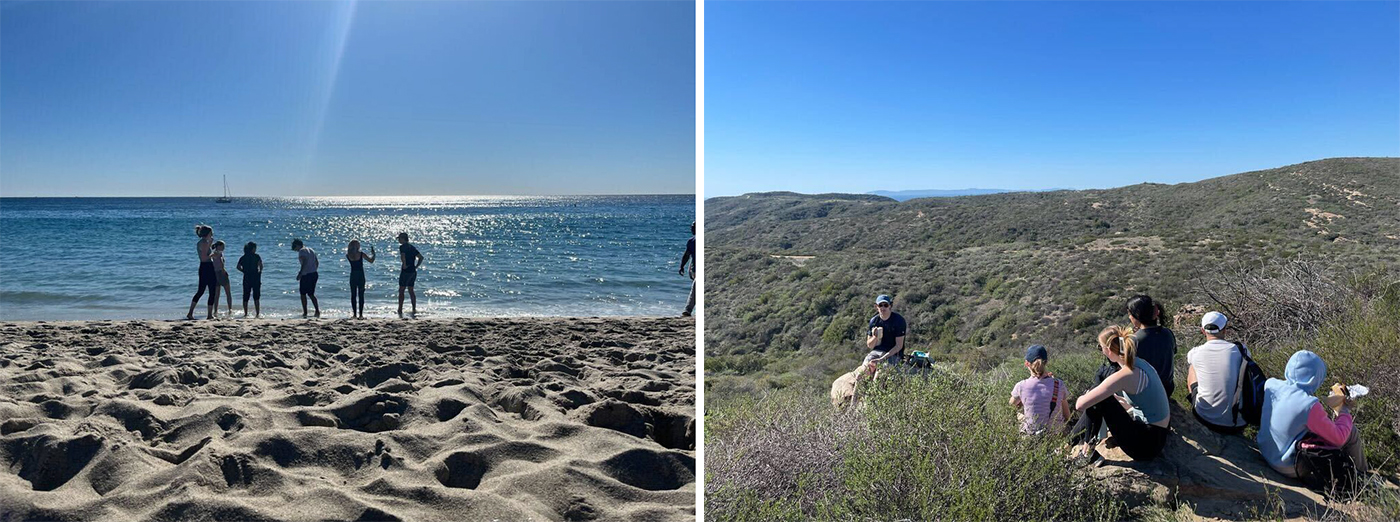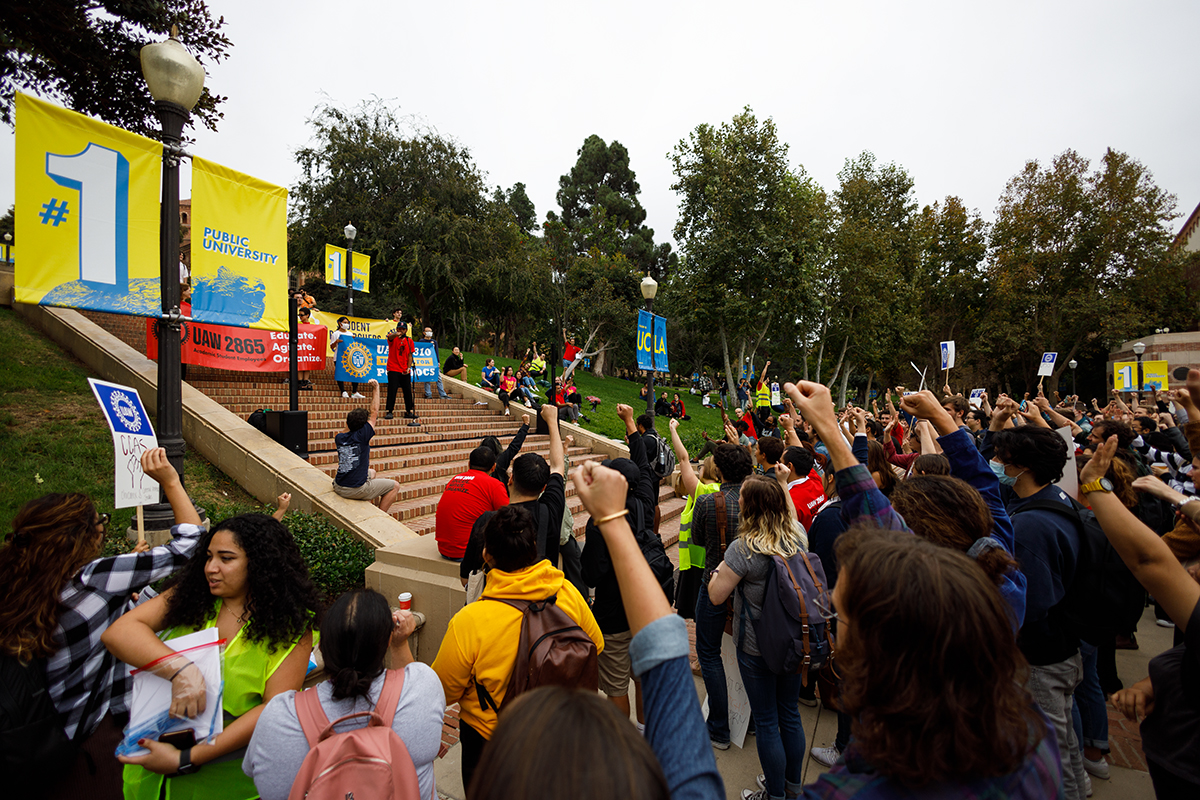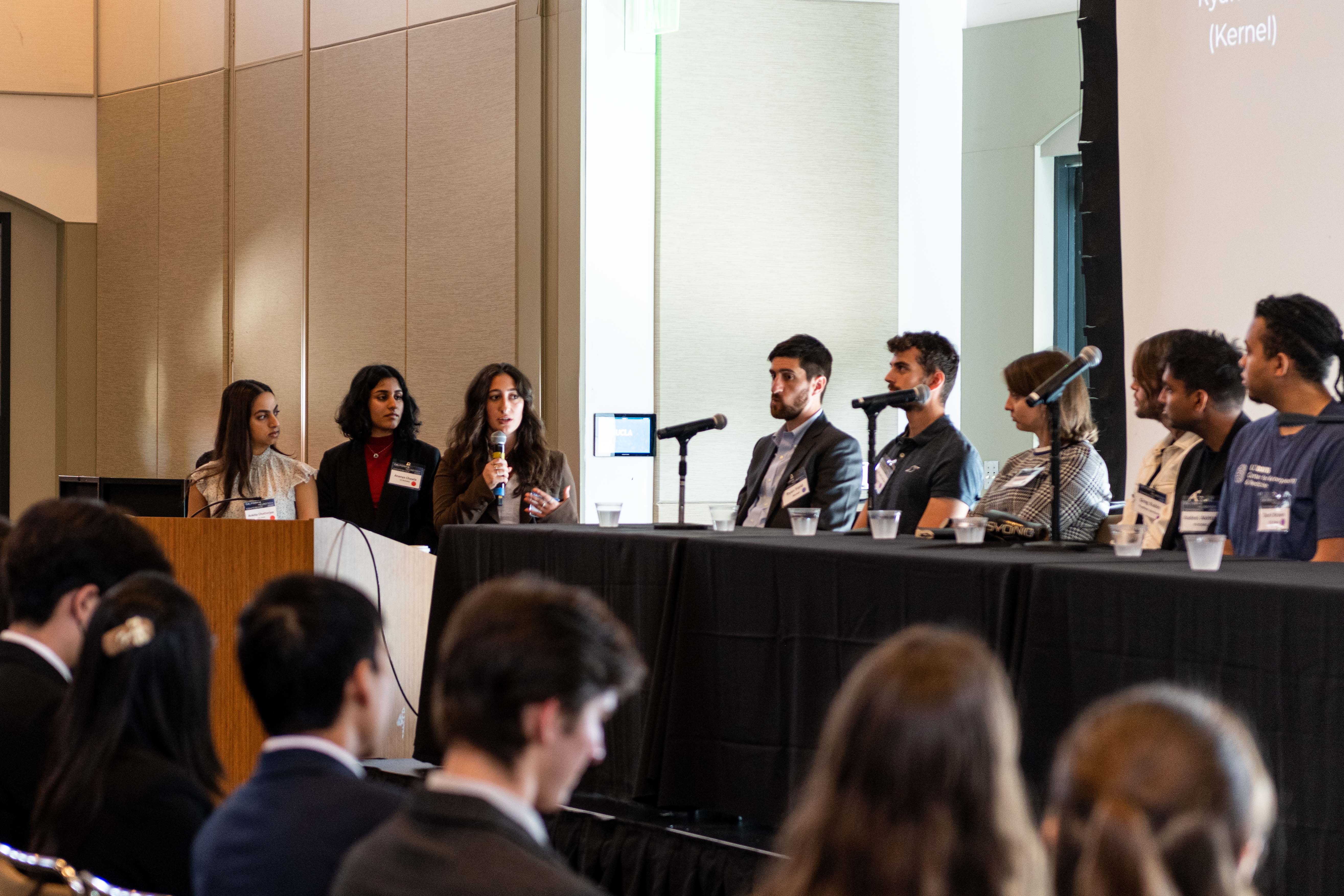Researchers discuss environmental efforts at inaugural UC Disaster Resilience Day

Pictured is La Kretz Hall. The UC Disaster Resilience Network hosted an event for students and faculty to hear from researchers about climate-related disaster mitigation. (Daily Bruin file photo)
By Evy Nguyen
Oct. 24, 2023 7:08 p.m.
The UC Disaster Resilience Network hosted the inaugural UC Disaster Resilience Day on Oct. 12, welcoming researchers and leaders from across the nation to address environmental crisis efforts.
Hundreds of researchers, environmental experts and community representatives gathered virtually and in person at UC Center Sacramento for the event, which featured panels, discussions and keynote speakers focused on disaster resilience work and initiatives.
This year’s theme, “Building Resilience Together,” emphasized the importance of building disaster readiness from the local to the global level through the collaborative efforts of government, academia, the private sector and the scientific community, said Sujit Mohanty, chief of the United Nations Office for Disaster Risk Reduction’s Regional Office for Arab States. LeRoy Westerling, chair of UC DRN, also said the event aimed to showcase disaster resilience work, identify new sources of support and partnership, and increase awareness of and engagement with UC DRN.
“Our goal today is severalfold. We want to look at our state with respect to disaster preparedness, resilience, recovery – what are we doing, what are we doing well, what are we doing not as well and what are we learning along the way. For better or for worse, we have a lot of opportunities to learn, and that is now, every day,” said Geoff Green, CEO of Santa Barbara City College Foundation.
The event opened with four keynote speakers, followed by a panel about disaster resilience and two parallel breakout sessions covering topics including climate resilience, critical external partnerships, cross-university partnerships, seismic resilience and coastal resilience.
The opening program consisted of keynote speakers including Saharnaz Mirzazad, chief deputy director of climate and planning at the Governor’s Office of Planning and Research, and Rodrigo Madanes, global innovation artificial intelligence leader at Ernst & Young. The speakers addressed the effects of natural disasters, California’s preparation for climate challenges and the role of private and public sector firms in disaster response.
Sapna Thottathil, managing director of the UC Center for Climate, Health and Equity, opened the panel on disaster resilience and discussed how UC Health and the UC Office of the President are working to prepare the health system for climate change impact through vulnerability assessments and operations planning.
The UC has also signed the White House pledge to take action on climate change – a commitment to emissions reduction and sustainable infrastructure – and updated the 2025 Sustainable Practices Policy Goal, Thottathil said.
Professors from UC Riverside and UC San Diego also discussed educational initiatives at their universities and proposed new courses that focus on teaching cybersecurity, health vulnerability and disaster resilience science.
Bruce Riordan, director of the Berkeley Climate Change Network, said at the conference that all 10 UC campuses are increasing research and education concerning climate resilience. Student and classroom discussion of climate topics has become more widespread across campuses, leading to law, engineering and business schools becoming increasingly involved in addressing the crisis, he added.
“We’re concerned with not just doing research or not just teaching students and engaging students but having an impact because we have to, and focused on solutions,” Riordan said.
Ernst & Young also introduced its annual data science challenge at the event to encourage students and early career professionals to use data to produce solutions that help solve global sustainability issues. In this year’s competition, participants will be prompted to answer the question of how better coastal resilience can be built, Madanes said at the event.
During the data science parallel breakout session, experts discussed the technologies they hope to see implemented in the next few years. Simone Fobi, an applied research scientist in Microsoft Research’s AI For Good Lab, said in the breakout session that she wants to see data used as part of risk assessments, which would allow researchers to better understand the general amount of risk an area is exposed to.
Meredith Lee, the chief technical advisor to the dean at UC Berkeley’s College of Computing, Data Science, and Society, said at the breakout session that she wants future technologies to focus on critical thinking, context and the human perspective surrounding disasters.
“It’s so easy to chase the shiny ball and like, ‘Oh my gosh, look what it can do,’ … but we are humans, we have use cases that are in desperate need – have been for decades – around disaster resilience, and let’s make sure that we remember why we’re here,” Lee said.
Katya Armistead, assistant vice chancellor and dean of student life at UC Santa Barbara, said at the conference that it is important to get students engaged in their communities and student duties.
“We should never underestimate how people really do want to make a difference,” Armistead said.





